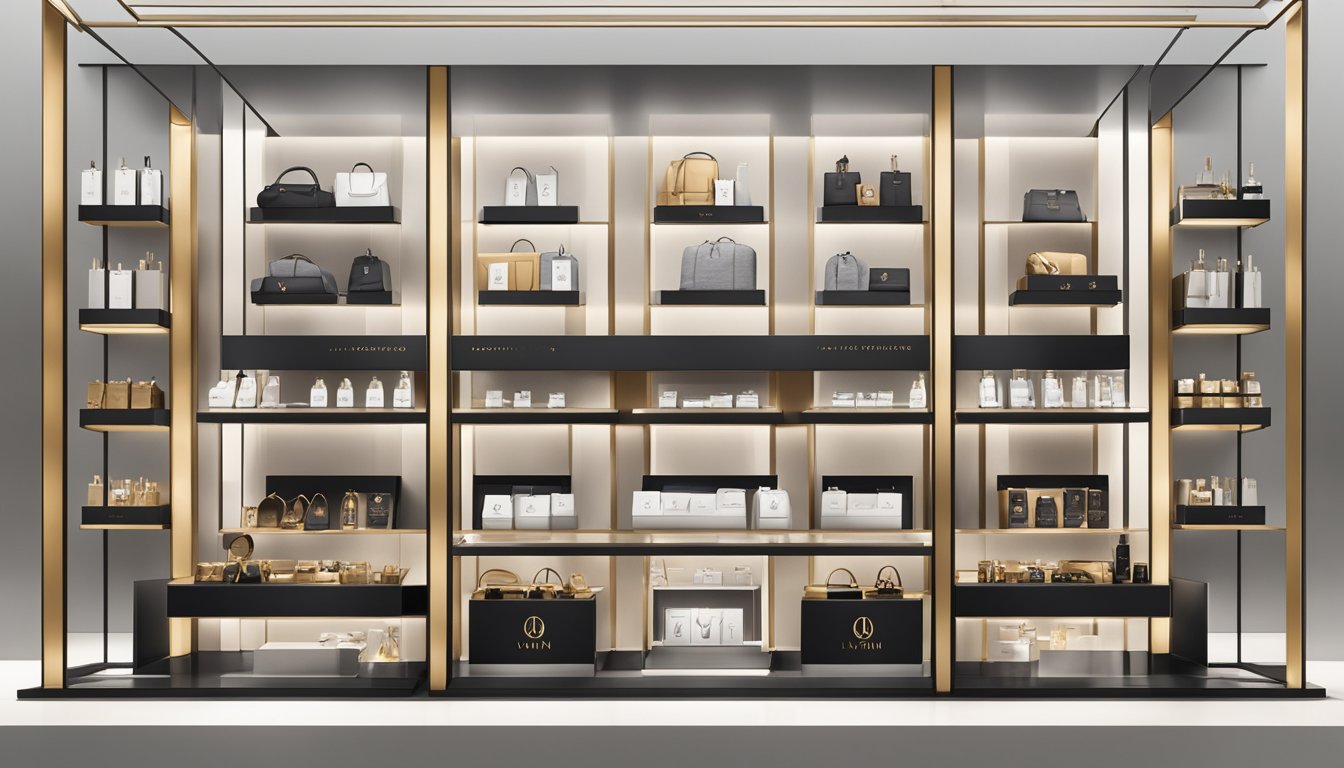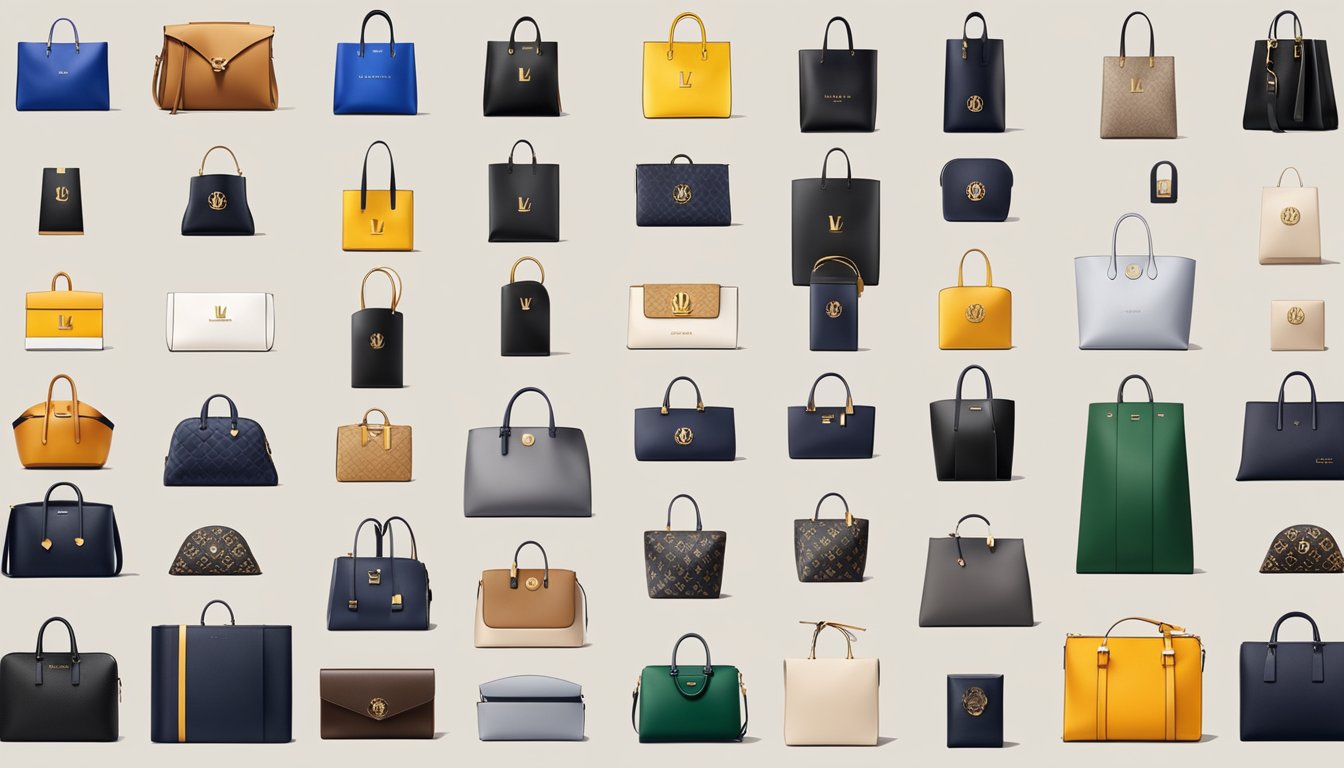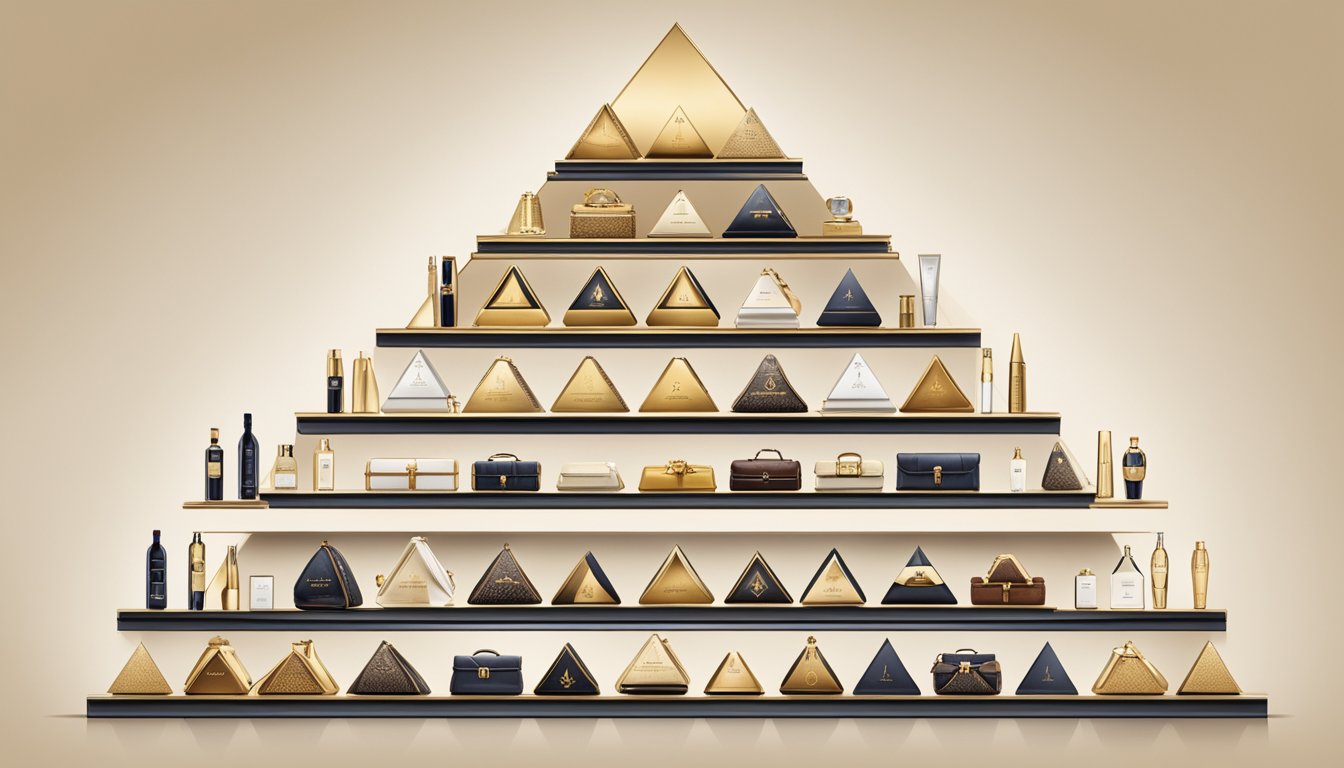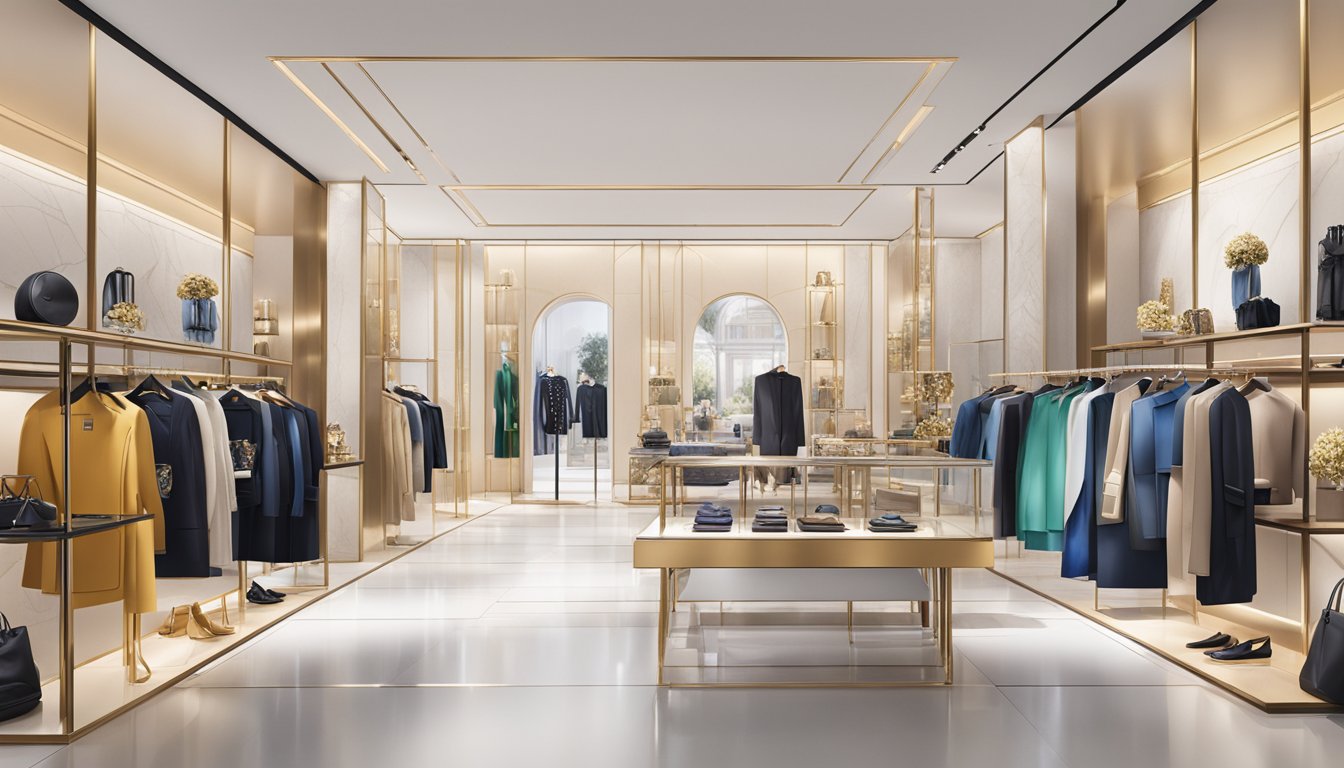Introduction:

If you’re a lover of luxury brands, you’ve probably come across LVMH. LVMH is a French multinational corporation that specializes in luxury goods, including fashion, cosmetics, watches, and perfumes. The company is known for its high-end brands and has a rich history and heritage that dates back to the 19th century.
History and Heritage:
LVMH was founded in 1987 by Bernard Arnault, who is now one of the richest men in the world. The company’s roots, however, go back to the 19th century when Louis Vuitton founded his eponymous brand of luxury luggage. Over the years, LVMH has grown to become the world’s largest luxury goods conglomerate, with over 75 prestigious brands in six sectors.
Portfolio of Brands:
LVMH’s portfolio of brands is impressive, to say the least. The company controls around 60 subsidiaries that manage 75 luxury brands, including Louis Vuitton, Christian Dior, Fendi, Givenchy, Marc Jacobs, Sephora, TAG Heuer, and Bulgari. Each brand has its own unique identity and offers a wide range of products, from high-end fashion to luxury skincare.
Key Takeaways
- LVMH is a French multinational corporation that specializes in luxury goods, including fashion, cosmetics, watches, and perfumes.
- LVMH has a rich history and heritage that dates back to the 19th century, and is known for its high-end brands.
- LVMH’s portfolio of brands includes over 75 prestigious brands in six sectors, each with its own unique identity and product offerings.
History and Heritage

LVMH is a luxury conglomerate with a rich and fascinating history. The company was formed in 1987 through a merger between Louis Vuitton and Moët Hennessy, which were two of the most iconic and prestigious brands in the world of luxury goods at the time.
Formation of LVMH
The merger of Louis Vuitton and Moët Hennessy was a landmark event in the world of luxury goods. It brought together two companies with unique heritage and expertise in their respective fields. Louis Vuitton was founded in 1854 and was known for its high-quality luggage and leather goods, while Moët Hennessy was a leading producer of champagne and cognac.
Iconic Acquisitions
Over the years, LVMH has acquired a number of other iconic luxury brands, including Christian Dior. The acquisition of Christian Dior was a major milestone for LVMH and helped to solidify the company’s position as a leading player in the world of luxury goods.
Historic Houses
LVMH owns a number of historic houses, each with its own unique heritage and story to tell. These houses include Louis Vuitton, Moët & Chandon, Hennessy, Givenchy, and Bulgari. Each of these houses has played a significant role in the development of the luxury goods industry and has helped to shape the way that we think about luxury today.
Overall, LVMH is a company with a rich and fascinating history, and its brands are some of the most iconic and prestigious in the world of luxury goods. Whether you are interested in fashion, jewellery, or fine wines and spirits, LVMH has something for everyone. With its unique heritage and commitment to quality and excellence, LVMH is a true leader in the world of luxury goods.
Portfolio of Brands

LVMH is the world’s largest luxury goods conglomerate, with a portfolio of 70 distinguished houses rooted in six different sectors. Each of the brands concentrates on preserving its savoir-faire and producing an exquisite caliber of products.
Fashion and Leather Goods
LVMH’s fashion and leather goods sector includes iconic brands such as Louis Vuitton, Dior, Givenchy, Fendi, and Celine. These brands are renowned for their high-quality leather goods and fashionable clothing. Louis Vuitton is one of the most valuable luxury brands in the world, with a brand value of $47.2 billion. Dior, Givenchy, and Fendi are also highly valued brands that are known for their elegant designs and exquisite craftsmanship.
Perfumes and Cosmetics
LVMH’s perfumes and cosmetics sector includes brands such as Sephora, Christian Dior, and Givenchy. These brands are known for their high-quality fragrances and cosmetics. Sephora is a leading beauty retailer that offers a wide range of products from different brands. Christian Dior and Givenchy are renowned for their luxurious fragrances and makeup products.
Watches and Jewelry
LVMH’s watches and jewelry sector includes brands such as Bulgari, TAG Heuer, and Zenith. These brands are known for their exquisite watches and jewelry pieces. Bulgari is a renowned Italian luxury brand that offers high-end watches and jewelry pieces. TAG Heuer is a Swiss luxury watchmaker that is known for its innovative and sporty designs. Zenith is a Swiss luxury watchmaker that is known for its high-quality and precise watches.
Wines and Spirits
LVMH’s wines and spirits sector includes brands such as Moët Hennessy, Dom Pérignon, and Veuve Clicquot. These brands are known for their high-quality champagnes and spirits. Moët Hennessy is a leading producer of champagne and spirits, with a portfolio that includes brands such as Hennessy, Dom Pérignon, and Veuve Clicquot.
Selective Retailing
LVMH’s selective retailing sector includes brands such as Sephora and DFS. These brands are known for their high-quality retail experiences and products. Sephora is a leading beauty retailer that offers a wide range of products from different brands. DFS is a luxury travel retailer that offers a wide range of products from different brands.
LVMH’s portfolio of brands is a testament to the company’s commitment to excellence and innovation. Whether you’re looking for high-quality leather goods, luxurious fragrances, or exquisite jewelry pieces, LVMH has a brand that will meet your needs.
Corporate Structure and Performance

LVMH is a conglomerate of luxury fashion brands that has a unique operating model anchored by six pillars. The company’s structure and operating principles ensure that its Maisons are both autonomous and responsive, allowing them to be extremely close to customers and make rapid, effective, and appropriate decisions.
Revenue and Profit
LVMH is the world’s leading luxury products group, gathering 75 prestigious brands, with $86.2 billion revenue in 2023 and a net profit of $13.2 billion. The company’s decentralized organizational structure allows most decisions to be made by mid-level or lower-level managers, rather than by the head, which enables quick decision making and effective implementation of strategies.
Market Capitalisation
With a market capitalization of over $400 billion, LVMH is one of the most valuable companies in the world. The company’s success can be attributed to its strong financial performance, which is driven by its diverse portfolio of luxury brands and its ability to adapt to changing market conditions.
Subsidiaries and Fashion Houses
LVMH has a diverse portfolio of subsidiaries and fashion houses, including Louis Vuitton, Dior, Fendi, Celine, Givenchy, Bulgari, and many others. Each brand has its own unique identity and target market, which allows LVMH to cater to a wide range of customers. The company’s focus on sustainability and ethical practices has also helped to enhance its reputation and attract new customers.
In conclusion, LVMH’s corporate structure and performance are key factors in its success as a luxury conglomerate. The company’s decentralized organizational structure, strong financial performance, and diverse portfolio of luxury brands have enabled it to maintain its position as the world’s leading luxury products group.
Innovation and Creativity

LVMH has always been at the forefront of innovation and creativity, blending tradition and modernity to create products that spark desire among customers. The company’s commitment to creativity is evident in the various initiatives it has launched over the years.
The LVMH Prize
The LVMH Prize is an initiative that was launched in 2013 to support young designers with strong potential. The prize provides a platform for emerging talents to showcase their work and gain exposure to the global fashion industry. Winners receive a cash prize of €300,000 and a year of mentorship from experts at LVMH.
Supporting Young Brands
LVMH is committed to supporting young brands and nurturing emerging talents. The company has invested in several young brands over the years, providing them with the resources and support they need to grow and succeed. One such brand is Fenty, which was launched in collaboration with Rihanna. Fenty has since become one of the most successful brands in the LVMH portfolio.
Collaborations and Partnerships
LVMH is known for its collaborations and partnerships with some of the most innovative and creative minds in the industry. One such collaboration is with Marc Jacobs, who has been the creative director of Louis Vuitton and his own eponymous brand. The partnership has resulted in some of the most iconic and innovative designs in the industry.
LVMH’s commitment to innovation and creativity is evident in its various initiatives, collaborations and partnerships. The company’s investments in young brands and emerging talents have helped to shape the future of fashion, while its collaborations with some of the most creative minds in the industry have resulted in some of the most iconic designs of our time. With LVMH’s continued commitment to creativity, the future looks bright for the fashion industry.
Social Responsibility and Cultural Engagement

LVMH is a company that is not only concerned with its financial performance but also its social responsibility and cultural engagement. This section highlights some of the ways in which LVMH has demonstrated its commitment to sustainability, artistic contributions, and cultural exhibitions.
Sustainability Initiatives
LVMH is committed to sustainable development and reducing its impact on the environment. The company has implemented a number of initiatives to achieve this, including reducing its greenhouse gas emissions, increasing the use of renewable energy, and reducing waste.
LVMH’s commitment to sustainability extends to all of its sectors, from fashion and leather goods to wines and spirits. The company’s expertise in sustainable development has enabled it to curate a range of products that are both environmentally friendly and aesthetically pleasing.
Artistic Contributions
LVMH is known for its artistic contributions, which have been exhibited in museums and galleries around the world. The company’s talents are not limited to the fashion industry, but extend to the arts as well.
LVMH has collaborated with a number of artists to create unique and innovative pieces that reflect the company’s commitment to diversity and cultural engagement. These collaborations have resulted in a number of exhibitions that showcase the company’s expertise and creativity.
Cultural Exhibitions
LVMH is committed to promoting cultural engagement through a range of exhibitions and events. The company has curated a number of exhibitions that showcase its products and expertise, including a book-themed exhibition that celebrated the company’s literary heritage.
LVMH’s commitment to cultural engagement extends to all of its sectors, from fashion and leather goods to wines and spirits. The company’s diversity and image are reflected in the exhibitions it curates, which showcase the company’s commitment to development and innovation.
Overall, LVMH’s commitment to social responsibility and cultural engagement is reflected in the initiatives it has implemented and the exhibitions it has curated. The company’s commitment to sustainability, artistic contributions, and cultural engagement is a testament to its dedication to excellence and innovation.
Frequently Asked Questions

Which high-end fashion houses are included in the LVMH portfolio?
LVMH is home to some of the world’s most prestigious fashion houses, including Louis Vuitton, Christian Dior, Givenchy, Fendi, Loewe, and Celine. These brands are known for their luxurious designs and high-quality materials, making them a favourite among fashion enthusiasts.
Who helms the LVMH conglomerate as its CEO?
Bernard Arnault is the CEO and Chairman of LVMH. He is one of the world’s richest men and has been instrumental in expanding the company’s portfolio over the years.
What are the latest additions to the LVMH brand family?
In recent years, LVMH has acquired several new brands, including Tiffany & Co, Belmond, and Rimowa. These acquisitions have helped to strengthen LVMH’s position as a leader in the luxury market.
How do the offerings of Moët Hennessy fit into the LVMH collection?
Moët Hennessy is a subsidiary of LVMH that produces and distributes a range of high-end wines and spirits. The company’s offerings, which include brands such as Moët & Chandon, Dom Pérignon, and Hennessy, complement LVMH’s fashion and leather goods brands, creating a well-rounded portfolio of luxury products.
Can you name some direct competitors to LVMH in the luxury market?
LVMH faces competition from other luxury conglomerates such as Kering, Richemont, and Chanel. Each of these companies has its own portfolio of high-end brands and competes with LVMH for market share in the luxury industry.
Does LVMH have ownership of the renowned brand Gucci?
No, LVMH does not own Gucci. The brand is owned by Kering, another luxury conglomerate. However, LVMH does own several other high-end fashion houses, as mentioned above.




